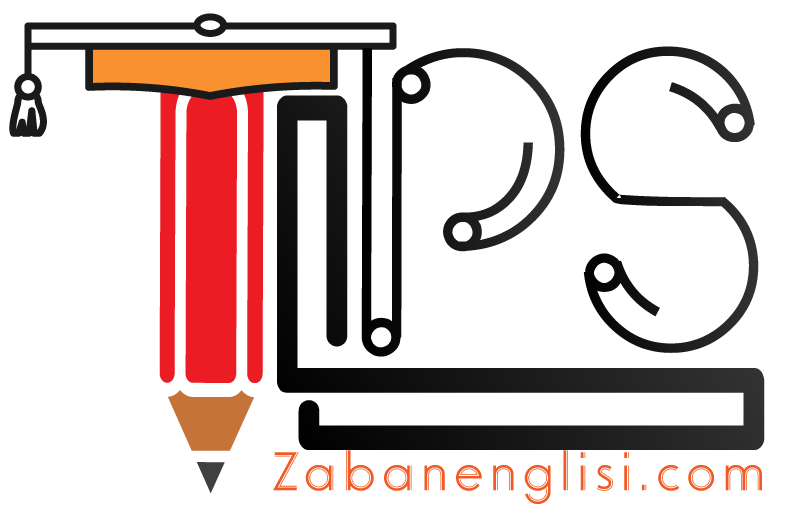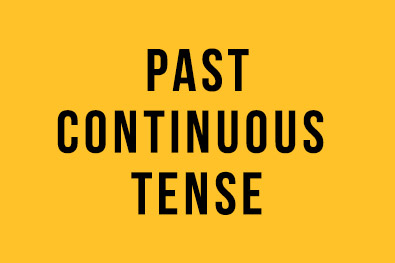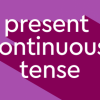یادگیری زمانها و استفاده درست از آنها، گام مهمی در فرایند آموزش زبان انگلیسی است.در اینجا با هم زمان حال کامل یا present perfect tense را یاد می گیریم. برای مشاهده مقاله گذشته کامل روی لینک کلیک نمایید.
[lwptoc]
تعریف زمان حال کامل:
زمان حال کامل، برای اشاره به عملی استفاده میشود که در گذشته نامشخصی شروع شده و اکنون پایان یافته، ولی همچنان آثار آن تا زمان حال باقی مانده است. حال کامل معادل «زمان ماضی نقلی»، در زبان فارسی است.
مثال:
Sarah has lived in this house since two years ago.
شما از این جمله چه برداشتی دارید؟
اگر به جمله ی بالا توجه کافی داشته باشید، مفهوم جمله ی بالا این است که فاعل از دو سال پیش به این خانه آمده و دو سال گذشته را در این خانه زندگی کرده است و در نهایت هم در زمان حال یعنی الان در این خانه زندگی می کند.
لطفا جملات زیر را با دقت بخوانید و در باره ی آنها با دقت فکر کنید.
Sarah moved in this house 2 years ago. / and
She lived in this house during two past years./ and
She is living in this house now.
اگر سه جمله ی بالا را گوینده بخواهد در یک جمله بیان کند، باید از زمان حال کامل استفاده نماید.
مثال دوم:
They have practiced swimming for 2 years.
لطفا به مفهوم جمله بالا ابتدا خوب فکر کنید.
مفهوم جمله بالا این است که فاعل یعنی they به مدت دو سال که تمرین کردن شنا را شروع کرده اند و الان هم شنا تمرین می کنند.
به این سه جمله توجه کنید.
They started to practice swimming 2 years ago.
They practiced swimming during two past years.
They are practicing swimming now.
حالا گوینده می تواند سه جمله بالا را با هم ادغام نماید و آنها را به شکل جمله ی حال کامل زیر بیان نماید.
They have practiced swimming for 2 years.
پس امیدوارم که مفهوم زمان حال کامل را دقیق یاد گرفته باشید،مثال:
My sister has studied English since last year.
My sister has studied English for one year.
مفهوم هر دو جمله یبال این است که فاعل فعل study را از سال قبل شروع کرده و الان هم انگلیسی مطالعه می کند.
تفاوت زمان حال کامل با حال کامل استمراری:
همانطور که میدانید، حال کامل زمانی به کار میرود که عملی که در گذشته انجام شده، اکنون به پایان رسیده است و ما شاهد نتایج و آثار آن هستیم. ولی در نوع استمراری، آن عمل همچنان در حال انجام است و تداوم دارد.
همچنین، حال کامل برای موقعیتهای پایدار و قطعی که دارای نتیجه مشخص هستند، به کار میرود. ولی در حال کامل استمراری، از اقدامات نیمه تمام صحبت میشود و بیشتر تمرکز روی خود آن عمل است.
کاربردهای زمان حال کامل:
هنگامی که میخواهیم در مورد اقدام ناتمامی صحبت کنیم که از گذشته شروع شده و تا امروز ادامه دارد، از این زمان همراه با کلماتی مثل “since” یا “for” استفاده میکنیم.بیان کاری که به اتمام رسیده است، ولی آثارش همچنان وجود دارد.بیان کاری که انجام شده، ولی زمان انجامش مهم نیست.
ترجمه حال کامل به زمان فارسی:
نحوه ی ترجمه زمان حال کامل به زبان فارسی به شکل زیر است.
فاعل + بن ماضی فعل + ه + ام/ ای/ است/ ایم/ اید/ اند
پس ترجمه ی دو مثال بالا می شود.
خواهرم از سال گذشته انگلیسی تمرین کرده است.
خواهرم بمدت یک سال انگلیسی تمرین کرده است.
I have been here since 10 o`clock.
I have been here for 3 hours.
من از ساعت ۱۰ اینجا بوده ام. یا من بمدت ۳ ساعت اینجا بوده ام.
She has taught English in this school since she was 25.
She has taught English for six years.
او در این مدرسه از وقتی که ۲۵ ساله بود انگلیسی تدرس کرده است.
او در این مدرسه بمدت ۶ سال انگلیسی تدریس کرده است.
نحوه ساخت زمان حال کامل:
Subject+ have/has + past participle of the verb + object + adverbs.
مثال:
I have worked in this company since 3 years ago.
You have worked in this company for 5 five years.
He has worked in this factory since he came in this city.
She has worked here since she got married.
They have worked in this factory for 8 months.
Sarah has been married for 2 years.
David has been married for 2 years too.
I have taught English since two decades ago.
I have taught English for two decades.
He has taught English for 8 years.

نکات مهم شکل سوم افعال:
اگر انتهای فعل e داشت تنها کافی است برای ساختن شکل سوم به آن d اضافه کنیم.
اگر حرف یکی مانده به آخر صدادار و استرسدار باشد، حرف بیصدای آخر فعل دوبار تکرار میشود.
در انگلیسی بریتانیایی اگر آخر فعلی L باشد دوبار تکرار میشود، اما در انگلیسی آمریکایی L یکبار میآید.
اگر انتهای فعل y باشد به i تبدیل میشود.
یادآوری: در گویش بومی و محلی فاعل یا ضمایر فاعلی می توانند با have یا has ادغام شوند و به شکل های زیر بکار روند.
I`ve worked in this company since 3 years ago.
You`ve worked in this company for 5 five years.
He`s worked in this factory since he came in this city.
She`s worked here since she got married.
They`ve worked in this factory for 8 months.
Sarah`s been married for 2 years.
David`s been married for 2 years too.
I`ve taught English since two decades ago.
I`ve taught English for two decades.
He`s taught English for 8 years.
She`s taught English for 8 years.
Sarah`s taught English to us since she was 25.
Sarah`s taught English to us for 5 years.
They`ve tried to solve this math exercise for 19 hours.
They`ve tried to solve this math exercise since 3 o`clock .
David`s wanted to have a car since I knew him.
David`s wanted her sister to study English for the past 2 years.
نحوه ی ساخت جمله ی سوالی زمان حال کامل:
برای سوالی کردن زمان حال کامل کافیه have/has را در اول جمله قرار دهیم:
Have / has + subject + past participle of the verb + object + adverbs?
یا اینکه می توانید برای ساختن جملات پرسشی حال کامل با کلمه پرسشی، ابتدا از کلمه پرسشی استفاده میکنیم. سپس فعلهای کمکی «have» یا «has» و در ادامه، فاعل و شکل سوم فعل را میآوریم.
برای آشنایی بیشتر با این جملات پرسشی، به فرمول و مثالهای زیر توجه کنید.
Wh-word + have/has + subject + p.p?
مثال:
Have you studied English since last week?
Has he studied English since last week?
Has David studied English since 10 o`clock?
Has your brother studied English since morning?
Has Sarah`s sister studied English since you came back home?
Have we studied English since you saw us?
Have they studied English since 2 months ago?
Have I been here for two weeks?
Have you been here for two weeks?
Has Sarah been here for ten weeks?
Has my brother been here for 10 days?
Has he been in England for 10 years?
Have we been there for 5 weeks?
Have you been in England for five months?
Have they been here for 8 months?
نحوه پاسخ دادن به این سوالات :
یادآوری: برای پاسخ دادن به یک سوال پاسخ دهنده باید به نکات زیر توجه نماید.
نکته اول: می دانید که اگر پاسخ شخص پاسخ دهنده بله باشد، یعنی فاعل فعل را انجام دهد، پاسخ دهنده می توانداز yes به معنی بله استفاده نمایید.
نکته دوم:اگر پاسخ شخص پاسخ دهنده منفی باشد، یعنی فاعل فعل را انجام نداده باشد، پاسخ دهنده از no به معنی خیر می تواند استفاده نمایید.
نکته سوم: پاسخ دهنده می تواند دو نوع پاسخ بکار ببرد، جواب کوتاه ( با استفاده از فاعل و فعل کمکی جمله ) و جواب کامل ( که شامل فاعل و فعل اصلی جمله و بقیه ارکان جمله می باشد) .
حالا لطفا به مثال زیر پاسخ دهید.
Have you studied English since morning?
اگر پاسخ شخص پاسخ دهنده بله باشد پس می تواند بگوید.
Yes, I have, I`ve studied English since morning.
و در حالتی که پاسخ منفی باشد، می تواند از NO به شکل زیر استفاده نماید.
No, I haven’t, I haven’t studied English since morning.
حالا شما تمام سوالات و پاسخ های زیر را بارها تکرار نمایید تا به تک تک آنها مسلط شوید.
Has Sarah been here for 8 years?
Yes, she has, she`s been here for 8 years.
Has your brother been married since he was a university student?
No, he hasn’t, he hasn’t been married since he was a university student.
Has he lived in Tehran since last year?
Yes, he has, he`s lived in Tehran since last year.
Have you immigrated to Canada since 8 years ago?
No, we haven’t, we haven’t immigrated to Canada since 8 years ago.
Have they wanted you to join their team since last year?
No, they haven’t, they haven’t wanted me to join their team since last year.
Have David and Sarah cooperated with each other on this project since they met each other?
Yes, they have, they`ve cooperated with each other on this project since they met each other.
Has your family left there since last week?
Yes, my family has, my family has left there since last week.
Has your sister joined their team for six months?
No, she hasn’t, she hasn’t joined their team for six months.
Has she taught English to you for six months?
Yes, she has, she`s taught English to me for six months.
Has she lived here with you for six months?
No, she hasn’t, she hasn’t lived here with me for six months.
Has your sister`s husband managed his company for four years?
Yes, he has, he`s managed his company for four years.
نحوه ی ساخت جمله ی منفی حال کامل:
برا ی منفی کردن حال کامل، فعل کمکی has/have را با منفی سازِ not ترکیب میکنیم و برای مخفف کردن آن، حرف o را حذف کرده و به جای آن آپاستروف [ ‘ ] قرار میدهیم:
Subject + have not / has not + past participle of the verb + object + adverbs.
مثال:
I have not waited for you for 10 hours.
You have not waited for her for ten hours.
He has not played football for ten years.
She has not played piano for three hours.
Your family has not painted your apartment for six years.
They have not changed their car for twenty years.
We have not practiced English for two years.
نکته:” می توان در گویش بومی و محلی have یاhas و not را با هم ادغام کرد و آنها را به شکل کوتاه شده haven’t یا hasn’t بیان کرد.
I haven’t run in the park since three years ago.
You haven’t seen her since she came back Iran last month.
He hasn’t invited me to his birthday party since five years ago.
She hasn’t wanted us to help her since she was married.
Susan hasn’t saved money since two years ago.
David hasn’t met his family since last July.
They haven’t worked in this company since six months ago.
We haven’t gone there to see our family since they wanted us not to go there.
قیدهای زمان حال کامل:
زمان حال کامل با کلماتی مانند “yet”، “just”، “already”، “almost” “lately”، “recently”و غیره همراه میشود.
Yet :
Yet به معنی هنوز زمانی بکار می رود که گوینده بخواهد بیان کند که فاعل فعل را در زمان گذشته آغاز کرده و هنوز فعل تمام نشده است.
نکته مهمی را که باید در زمان حال کامل به آن توجه داشته باشید این است که yet در جملات منفی و منفی سوالی حال کامل بکار می رود. Yet می تواند هم در ابتدای جمله قبل از فعل اصلی و هم در انتهای جمله بکار برود.
I haven’t finished my homework yet.
I haven’t yet finished my homework.
They haven’t wanted us to join them yet.
We haven’t asked them to accept us in their team yet.
He hasn’t left here yet.
David hasn’t done his homework yet.
He hasn’t turned the light off yet.
We haven’t been able to pay our debts to them back yet.
They haven’t sold their house yet.
Your sister hasn’t passed all her exams yet.
She hasn’t studied the books that she should study yet.
Her parents haven’t helped her to finish her project yet.
We haven’t washed our car yet.
David`s family hasn’t repaired their house yet.
They haven’t painted the walls blue yet.
Haven’t you eaten your lunch yet?
Hasn’t she swept her room yet?
Hasn’t he cleaned his room yet?
Haven’t they finished cleaning their rooms yet?
Haven’t Sarah and Sam been married yet?
Hasn’t your family sold their car yet?
Hasn’t your brother left Iran to Paris yet?
Haven’t you washed your cars yet?
Haven’t they changed their plans yet?
Haven’t you seen him and his family yet?
Hasn’t your friend returned your book that she borrowed last year yet?

so far, up to now, up till now :
این سه قید، هرسه به معنی تا حالا، یا تا کنون می باشند.و مفهوم آنها از گذشته تا حال می باشد. so far در انتهای جمله ی حال کامل بکار می رود اما up to now یا up till now هم می توانند در ابتدای جمله ی حال کامل و هم در انتهای جمله ی حال کامل بکار بروند.
I have read three books so far.
I have read three books up to now.
Up to now, I have read three books.
I have finished writing my homework so far.
He has studied lesson one so far.
She has paid sixty percents of his debts so far.
Up to now, she has been able to pass two of her exams.
She has been able to pass two of her exams up to now.
Up to now, they have waited for her to come back and solve their problems.
She has lived in Canada so far.
Up to now, she has taught English to deaf students.
He has worked there so far.
He hasn’t spoken English so far.
Up to now, they haven’t wanted me to leave here.
David and Susan haven’t been able to speak English so far.
David has bought two houses up till now.
ever و never :
Ever و never در زبان انگلیسی به دو مفهوم جدا بکار می روند. به نکات زیر درباره کاربرد ever و never در انگلیسی توجه نمایید. : Ever و never اگر در زمان حال ساده بکار بروند به مفهوم هرگز یا هیچ وقت می باشند؛ اما اگر در زمان حال کامل بکار روند به معنی تاحالا یا تاکنون می باشند.
نکته : ever در جملات منفی وسوالی بکار می رود، اما never در جمله ی مثبت بکار می رود، ولی مفهوم جمله را منفی می کند.
لطفا جملات زیر را آنقدر تکرار کنید که بکاربرد ever و never مسلط شوید:
Have you ever been in England?
Has he ever ridden a camel?
Has she ever sent you an email?
Have you ever wanted them to borrow you any money?
Have they ever tried to speak with you about their problems?
Have David and Sarah ever been in an English class to learn it?
Has your brother ever learned two foreign languages?
Has he ever learned how to drive a car?
He has never been in England.
She has never tried to learn a foreign language.
Sarah has never spoken with her father about her problems.
Her father has never asked her what to do or not.
Sarah`s family has never seen her daughter.
They have never fixed their car.
Sue and Amy have never painted their apartment.
before و already :
هم ,before هم already هردو به معنی قبلا می باشند، و وقتی در زمان حال کامل بکار می روند که گوینده بخواهد بیان کند، فاعل فعلی را در زمان گذشته نامعین و نا مشخصی انجام داده و اثر آن در زمان حال مشخص است. نکته : before در آخر جمله ی زمان حال کامل و already در وسط جمله قبل از past participle فعل بکار می روند.
لطفا مثال های زیر را تا می توانید تکرار نمایید.
I have seen her before.
I have already seen her.
You have already met her.
You have met her before.
He has already learned how to speak English.
He has learned how to speak English before.
She has already passed all her exams.
She has passed all her exams before.
They have already left Iran to Paris.
They have left Iran to Paris before.
Sarah has already changed her hair style.
Sarah has changed her hair style before.
David has already wanted his father to borrow him some money.
David has wanted his father to borrow him some money before.
They have already called her to invite her to their birthday party.
They have called her to invite her to their birthday party before.
:just, recently, lately
این سه قید به معنی تازه، به تازگی یا اخیرا می باشند، و در زمان حال کامل وقتی بکار می روند که گوینده بخواهد بیان کند فاعل فعلی را تازه انجام داده و تمام شده اما اثر فعل در زمان حال باقی است.
نکته: just و recently در زمان حال کامل قبل از فعل اصلی یعنی past participle بکار می روند، و اما lately در آخر جمله ی حال کامل بکار می رود.
I have just eaten lunch.
I have recently been in Shiraz.
I have changed my car lately.
You have just arrived at home.
You have recently arrived at home.
You have arrived at home lately.
He has just learned how to drive.
He has recently learned how to speak English.
He has learned how to deal with the problems lately.
She has just been married.
She has recently been married.
She has been married lately.
We have just bought this house.
We have recently bought this house.
We have bought this house lately.
They have just moved in their new house.
They have recently moved in their new house.
They have moved in their new house lately.
:once, twice, thrice
حال کامل برای بیان افعالی بکار می رود که فاعل این افعال را در گذشته چندین بار انجام داده و اثر آن فعل در زمان حال باقی است. در نتیجه برای بیان تعداد انجام فعل در زمان گذشته از قیود بیان تکرار استفاده می کند، این قیود هم می توانند در آخر جمله زمان حال کامل بکار روند:
Once twice
Thrice four times
Five times ten times
Over and over again and again
Several times over and over again
مثال:
I have met him once.
You have read this book twice.
He has changed his car thrice.
They have met each other four times.
He has invited them to his house ten times.
She has asked her father to let her go to university over and over.
He has been there again and again.
I have talked to her twice.
She has painted her house thrice.
They have called her over and over.
David has changed his job several times.
Sarah has been in Saudi Arabia once.
I have ridden the camel four times.
She has invited them over and over
نکات مهم زمان حال کامل:
1. هیچگاه با زمان حال کامل، قید زمان گذشته به کار نمیرود.
I have bought this hat last week. (نادرست)
2. هنگام استفاده از زمان حال کامل (ماضی نقلی)، زمانی که بعد از since می آید گذشته ساده است.
I have known Sam since I have been 18. (نادرست)
زمان حال کامل چطور ساخته می شود؟
زمان حال کامل یا Present Perfect در انگلیسی برای بیان اتفاقهایی به کار میرود که در گذشته اتفاق افتاده ولی آن اتفاق یا تاثیرش تا زمان حال ادامه پیدا کرده است.زمان حال کامل در زبان انگلیسی معادل چه زمانی در زبان فارسی است؟زمان ماضی نقلی
چطور زمان حال کامل را سوالی کنیم؟
برای سوالی کردن زمان حال ساده کامل تنها کافی است جای فاعل و فعل کمکی (have/has) را با هم عوض کنیم.











